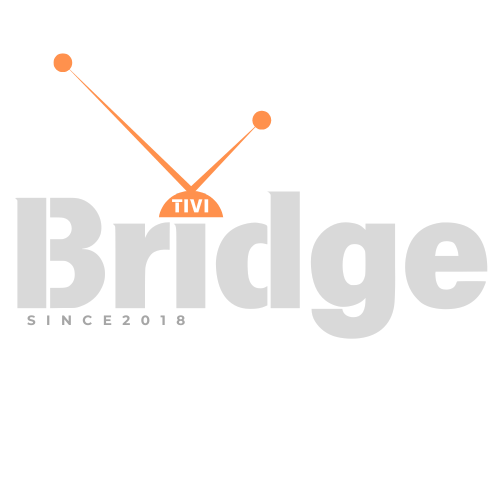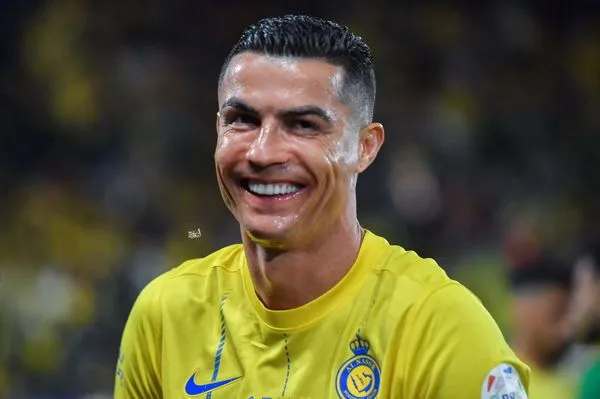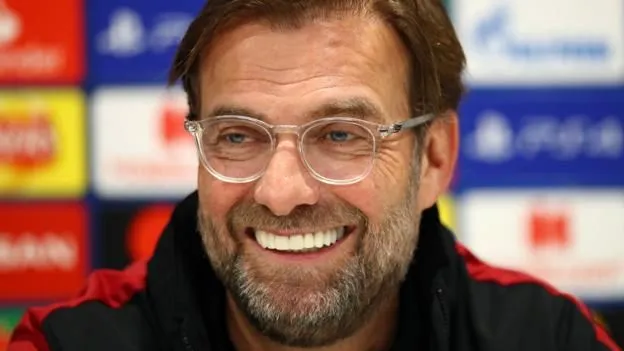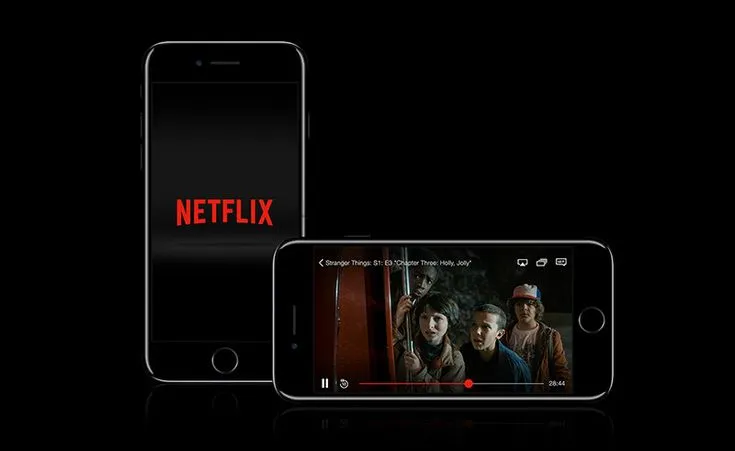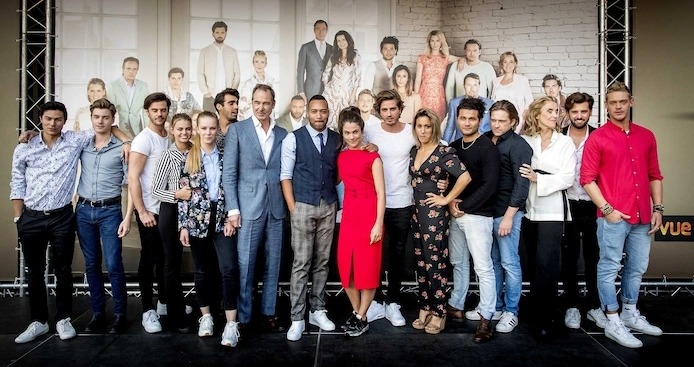Tom Cruise Cannes Film Festival Premiere The legendary actor’s return to the Croisette for his potential final mission as Ethan Hunt brought unprecedented star power to the 2025 festival
Tom Cruise Cannes Film Festival Premiere
The 78th Cannes Film Festival witnessed a truly breathtaking moment as Tom Cruise made his triumphant return to the prestigious event for the premiere of “Mission: Impossible The Final Reckoning.” The Hollywood icon’s appearance on the famous red carpet at the Palais des Festivals sent shockwaves through the French Riviera, cementing his status as one of the industry’s most enduring and charismatic stars. This momentous occasion not only marked what could be Cruise’s final outing as IMF agent Ethan Hunt but also showcased the extraordinary drawing power the actor continues to command after four decades in the spotlight.
The Cannes Film Festival premiere of this potential franchise conclusion turned into one of the most electrifying events in recent festival history. As we delve into the spectacular reception, behind-the-scenes revelations, and the remarkable legacy of both Tom Cruise and the Mission: Impossible franchise, we’ll explore how this pivotal moment might shape the future of action filmmaking and star-driven spectacles in an increasingly franchise-dominated industry.
Tom Cruise at Cannes: A History of Spectacular Appearances
Early Cannes Connections
Tom Cruise’s relationship with the Cannes Film Festival stretches back decades, beginning with his first appearance in 1992 for Ron Howard’s “Far and Away,” where he attended alongside then-wife Nicole Kidman. While that initial foray generated significant attention, it was merely a prelude to the actor’s more impactful festival appearances in the years to come.
The 2022 Fighter Jet Entrance
Cruise’s most memorable Cannes moment prior to this year occurred in 2022, when he arrived for a special screening of “Top Gun: Maverick” in characteristic spectacular fashion. The actor, known for performing his own stunts, orchestrated a flyover of fighter jets trailing the colors of the French flag across the sky above the festival venue. This grand entrance was followed by the presentation of an honorary Palme d’Or, recognizing his extraordinary contributions to cinema.
According to festival historian Pierre Laurent, “Cruise understands the theatrical nature of Cannes better than perhaps any other American star. His appearances transform from simple promotional events into cultural moments that celebrate cinema itself.” The 2022 appearance generated an estimated $18 million in media value for the festival and its partners, demonstrating Cruise’s exceptional promotional power.
The 2025 Return: Bigger and Bolder
For the premiere of “Mission: Impossible The Final Reckoning,” Cruise outdid even his previous spectacular appearances. His arrival involved a carefully choreographed sequence that paid homage to his most famous stunts from the Mission: Impossible series. Beginning with a helicopter descent onto the Boulevard de la Croisette, Cruise then completed a dramatic motorcycle ride through specially cleared streets before arriving at the red carpet, where he spent an unprecedented 90 minutes greeting fans—triple the time typically allotted to celebrities at such events.
“What sets Tom apart is his genuine connection with fans,” notes Entertainment Weekly correspondent Sarah Mitchell. “At Cannes, where celebrity is often viewed through an artistic or intellectual lens, Cruise brings an unabashed enthusiasm for audience engagement that breaks through the festival’s occasionally pretentious atmosphere.”
The Spectacular Red Carpet Event
Fashion Highlights and Star-Studded Appearances
The red carpet for “Mission: Impossible The Final Reckoning” transformed into a constellation of stars, with the franchise’s ensemble cast creating one of the most photographed events in recent Cannes history. Cruise himself arrived in an impeccably tailored Tom Ford tuxedo, maintaining his reputation for classic Hollywood elegance.
Joining him were returning franchise stars Hayley Atwell, Simon Pegg, Ving Rhames, and Rebecca Ferguson, alongside newcomers to the franchise including Oscar winner Michelle Yeoh and rising star Jacob Elordi. The assembled cast represented one of the most diverse and accomplished groups in the franchise’s history, highlighting director Christopher McQuarrie’s commitment to evolving the series while honoring its foundations.
Fashion journalist Emmanuelle Pierre of Vogue France observed, “The Mission: Impossible cast created a stunning visual tapestry on the carpet—each actor bringing their individual style while collectively projecting a unified energy that perfectly captured the collaborative spirit of major filmmaking.”
Critical First Reactions
The initial screening generated immediate and overwhelmingly positive reactions from the notoriously discriminating Cannes audience. The film received a staggering 12-minute standing ovation—among the longest in recent festival history and a clear sign of both respect for Cruise and appreciation for the film itself.
Critics in attendance took to social media with effusive early praise. Veteran film critic David Ehrlich called it “a masterclass in blockbuster filmmaking that delivers spectacular action without sacrificing character development,” while Indiewire’s Kate Erbland described it as “the rare franchise conclusion that actually provides satisfying closure while honoring everything that came before.”
Inside “Mission: Impossible The Final Reckoning”
Plot and Production Details
While full plot details remain closely guarded, “The Final Reckoning” reportedly brings Ethan Hunt’s story to a definitive conclusion after nearly 30 years. Set across multiple continents with major sequences filmed in Norway, Morocco, and Japan, the film represents the most ambitious entry in the franchise to date.
Production on “The Final Reckoning” encountered significant challenges, including pandemic-related delays and an escalating budget that ultimately exceeded $290 million, making it the most expensive Mission: Impossible film yet. This investment reflects Paramount’s confidence in the franchise’s continuing appeal and Cruise’s enduring star power, particularly following the staggering success of “Top Gun: Maverick,” which grossed nearly $1.5 billion worldwide.
The film’s extended production timeline allowed director Christopher McQuarrie and Cruise (who also serves as producer) to craft action sequences of unprecedented scale. According to industry insiders, the film features a centerpiece stunt that required over 18 months of preparation and special equipment developed specifically for the sequence.
Technical Innovations and Stunt Work
True to the franchise’s reputation for pushing the boundaries of practical effects, “The Final Reckoning” introduces several technical innovations. Cinematographer Fraser Taggart utilized newly developed camera systems capable of capturing high-speed action with exceptional clarity, while the production team developed customized rigs to enable complex tracking shots during the film’s most elaborate sequences.
Cruise, now 62, performed approximately 95% of his own stunts for the film, including what he has described as “the most challenging physical performance of my career.” During the Cannes Film Festival press conference, the actor revealed that one particular sequence required over 400 skydiving jumps to capture correctly, demonstrating his unwavering commitment to authentic action filmmaking.
“What makes the Mission: Impossible franchise unique is its dedication to practical effects in an era dominated by CGI,” explains film historian Mark Harris. “Cruise’s insistence on performing real stunts creates a visceral quality that audiences respond to on an almost subliminal level—you’re watching something genuinely dangerous, and that tension translates to the viewing experience.”
The Cannes Film Festival Master Class
Tom Cruise’s Insights on Filmmaking
A highlight of Cruise’s Cannes appearance was his participation in a special master class event, where the actor shared insights from his four-decade career with an audience of film students, industry professionals, and journalists. The two-hour session covered topics ranging from his approach to character development to his philosophy on stunt work and his evolving perspective on film production.
Cruise emphasized the collaborative nature of filmmaking, crediting directors like Steven Spielberg, Stanley Kubrick, and Christopher McQuarrie for shaping his understanding of the medium. “Every film set is a learning environment,” he explained during the session. “Even after all these years, I approach each project with the mindset of a student, looking to grow and discover new aspects of the craft.”
The actor also addressed the changing landscape of exhibition, expressing his passionate belief in the theatrical experience while acknowledging the evolution of viewing habits. “Nothing replaces the communal experience of sitting in a dark theater, sharing those emotions with strangers,” Cruise noted. “That’s the magic we’re fighting to preserve.”
Impact on Young Filmmakers
The master class had a profound effect on the emerging filmmakers in attendance. French film student Mathieu Bouchard called it “an extraordinary opportunity to learn from someone who approaches blockbuster filmmaking with the dedication of an artist,” while American director Samantha Wu credited Cruise with “demystifying the path from actor to producer in a way that feels both aspirational and achievable.”
Festival director Thierry Frémaux praised Cruise’s generosity with the students, noting that the actor spent an additional hour after the formal session answering individual questions and offering encouragement. “This kind of exchange represents the highest purpose of Cannes,” Frémaux stated. “To connect established masters with the next generation and ensure the continuation of cinema’s greatest traditions.”
Star Power in the Streaming Era
The Economic Impact of Cruise’s Presence
Tom Cruise’s appearance at the Cannes Film Festival generated substantial economic benefits for both the event and the surrounding region. Local businesses reported a 30% increase in activity during the premiere, while hotel occupancy rates reached nearly 100%—remarkable even for the festival period.
Media coverage of Cruise’s presence dominated entertainment news cycles for several days, with an estimated media value exceeding €25 million according to analytics firm MediaValue. This extraordinary attention underscores the actor’s unique position in the industry at a time when traditional movie stardom has been increasingly challenged by franchise IP and streaming disruption.
“What we’re witnessing with Cruise is the last of a certain kind of movie star—one whose personal brand transcends individual projects,” explains entertainment economist Samantha Rodgers. “His drawing power represents an increasingly rare commodity in today’s fragmented media landscape.”
The Future of Star-Driven Cinema
Cruise’s triumphal Cannes appearance raises important questions about the future of star-driven cinema. While franchise IP has dominated box office performance in recent years, Cruise stands as a notable exception—an actor whose personal brand continues to drive significant theatrical attendance.
Industry analysts suggest that Cruise’s success model may prove difficult to replicate for emerging stars. “The conditions that created Tom Cruise’s career—studio development deals, a theatrical-first business model, the gradual building of star power over multiple films—largely don’t exist anymore,” notes media researcher Jonathan Fields. “Today’s system often requires immediate results and provides fewer opportunities for star development.”
Nevertheless, Cruise’s Cannes appearance offered compelling evidence that authentic star power still resonates deeply with global audiences. His ability to command attention and generate excitement stands as a powerful reminder of cinema’s emotional connection with viewers—a connection that transcends platforms and business models.
The Festival’s Embrace of Blockbuster Cinema
Changing Attitudes at Cannes
The enthusiastic reception for “Mission: Impossible The Final Reckoning” reflects Cannes Film Festival’s evolving relationship with mainstream Hollywood cinema. Historically, the festival maintained a certain distance from commercial American productions, focusing instead on auteur-driven and international art films.
Recent years have seen a gradual shift in this approach, with the festival increasingly recognizing the artistic achievements possible within studio filmmaking. Films like “Mad Max: Fury Road,” “Top Gun: Maverick,” and now “The Final Reckoning” have received prestigious non-competition slots and significant festival support.
“What we’re seeing is a recognition that artistry isn’t limited by budget or commercial intent,” explains film professor Catherine Martin. “The technical virtuosity and narrative ambition of the best blockbusters deserve serious consideration alongside more traditionally ‘festival-friendly’ fare.”
Bridging Art and Commerce
This evolution represents a potential bridge between commercial cinema and the festival circuit that could benefit both worlds. For Cannes, embracing select commercial films brings increased global attention and financial support, while for studio productions, festival validation confers cultural legitimacy that can translate to broader audience interest.
Festival programmer Marcel Laurent acknowledges this mutual benefit: “We recognize that inspiring the next generation of filmmakers requires showcasing excellence in all forms of cinema. The spectacular craftsmanship of films like ‘Mission: Impossible’ demonstrates technical possibilities that expand the language of film itself.”
Legacy and Impact of the Mission: Impossible Franchise
Redefining Action Filmmaking
As “The Final Reckoning” potentially concludes Cruise’s tenure as Ethan Hunt, the legacy of the Mission: Impossible franchise stands as one of Hollywood’s most impressive achievements. Beginning in 1996, the series has consistently reinvented itself while maintaining core elements that audiences connect with.
Unlike many long-running franchises that rely heavily on nostalgia or formula, Mission: Impossible has continually evolved, with each director bringing a distinct visual approach while building upon the established framework. From Brian De Palma’s conspiracy thriller to John Woo’s stylized action to the recent McQuarrie-directed entries combining emotional depth with spectacular set pieces, the franchise represents a master class in adaptation and renewal.
“What’s remarkable about Mission: Impossible is how it has served as a vehicle for directorial expression while maintaining commercial appeal,” notes film historian Alexandra Jones. “Few franchises have permitted such distinctive authorial voices while delivering consistent box office results.”
Cultural Impact Beyond Cinema
The franchise’s influence extends beyond filmmaking techniques to broader cultural impact. The iconic theme music, the “self-destructing message” concept, and various stunts have penetrated popular consciousness, referenced across media and instantly recognizable to audiences worldwide.
Moreover, the series has helped shape action cinema’s approach to practical effects, with numerous productions citing Mission: Impossible as inspiration for pursuing real stunts rather than computer-generated alternatives. This emphasis on authenticity has influenced everything from the Jason Bourne series to the recent James Bond films.
“You can trace a direct line from Mission: Impossible’s stunt philosophy to the current renaissance in practical action filmmaking,” explains stunt coordinator Mark Dawson. “Cruise and his team demonstrated that audiences respond viscerally to authentic physical performances, creating a counter-movement to the CGI dominance of the early 2000s.”
The Emotional Farewell at Cannes
A Personal Moment for Cruise
Perhaps the most touching moment of the Cannes premiere came during the post-screening standing ovation, when Cruise appeared visibly moved by the audience’s response. After nearly three decades embodying Ethan Hunt, the actor seemed to experience a moment of genuine emotional release as he acknowledged the possibility that this represented his final bow as the character.
“In that moment, we weren’t seeing the movie star, but the artist appreciating a profound connection with an audience that has followed this journey for generations,” observed French critic Marie Clément. “It was a rare glimpse of vulnerability from someone who typically projects unstoppable confidence.”
Long-time collaborator Simon Pegg later shared that the Cannes screening held special significance for Cruise. “Tom has always seen this franchise as a love letter to cinema itself,” Pegg explained. “Having this potential conclusion celebrated at the world’s most prestigious film festival represented a perfect full circle moment for him.”
Industry Recognition
The reception at Cannes seems likely to position “The Final Reckoning” for consideration beyond typical action film recognition. While the Mission: Impossible franchise has received technical Academy Award nominations throughout its run, the emotional weight and artistic accomplishment of this entry has generated early discussion about broader recognition.
“What we’re witnessing is the culmination of a project that has consistently elevated the possibilities of action cinema,” notes Oscar historian Mark Johnson. “The sustained excellence of this franchise, particularly its later entries, deserves recognition for its contribution to cinematic art, not merely its commercial success.”
Looking for Premium Channels, Sports, and 4K Streaming?
Don’t miss out on these top-rated IPTV services – all at unbeatable prices!
🔥 TiviBridge – Ideal for sports lovers & international content
🎬 Iptvbridge – Perfect for live TV, movies & entertainment
💰 TiviPlanet – Best value for budget-conscious streamers
🚀 Start Your IPTV Business Today!
Get instant access to a powerful Reseller IPTV Panel with competitive pricing, advanced features, and 24/7 support. Join TiviBridge and grow your own IPTV empire with ease!
👉 Start your FREE trial now and elevate your viewing experience with seamless, high-quality streaming!
Conclusion: The Enduring Power of Movie Stardom
Tom Cruise’s spectacular appearance at the Cannes Film Festival premiere of “Mission: Impossible The Final Reckoning” represents more than just another promotional event. It stands as powerful evidence that authentic movie stardom continues to resonate in an era increasingly dominated by IP and algorithms.
The extraordinary reception—from both the festival’s discerning audience and the global public—demonstrates that the emotional connection between performer and audience remains one of cinema’s most powerful forces. As Cruise potentially concludes his tenure as Ethan Hunt, his Cannes triumph serves as a reminder of the irreplaceable magic that occurs when exceptional talent meets genuine passion for the medium.
Whether “The Final Reckoning” truly marks the conclusion of Cruise’s involvement with the franchise or simply a turning point, the Cannes Film Festival premiere has already secured its place in cinematic history—a spectacular celebration of a performer who has dedicated his career to pushing the boundaries of what’s possible on screen while never losing sight of the audience he seeks to entertain.
As the festival continues, the conversation around Cruise’s appearance and the film itself shows no signs of diminishing. In an industry constantly searching for the next trend, the enduring appeal of committed star power and spectacular filmmaking craft provides a compelling argument for cinema’s continued cultural relevance. Tom Cruise’s Cannes moment wasn’t just a triumph for the actor or the franchise—it was a victory for cinema itself.
FAQ Section
How many Mission: Impossible films has Tom Cruise starred in?
Tom Cruise has starred in eight Mission: Impossible films, beginning with the original in 1996 and concluding with “The Final Reckoning” in 2025.
What makes the Cannes Film Festival so prestigious?
The Cannes Film Festival is considered prestigious due to its rich 78-year history, strict selection process, influential juries of film professionals, and ability to launch and elevate films to international prominence. It remains one of the “Big Three” film festivals alongside Venice and Berlin.
Has Tom Cruise won awards for his role as Ethan Hunt?
While Cruise has received critical acclaim for his portrayal of Ethan Hunt, he has not won major acting awards specifically for the role. However, the franchise has received numerous technical awards for stunts, sound design, and visual effects.
Will there be more Mission: Impossible films after “The Final Reckoning”?
Paramount Pictures has not officially announced plans for future Mission: Impossible films after “The Final Reckoning.” While this film is positioned as a conclusion to Ethan Hunt’s story, the studio could potentially continue the franchise with new characters.
What is the significance of premiering at the Cannes Film Festival?
Premiering at Cannes provides films with unparalleled international media exposure, critical prestige, and distribution opportunities. For blockbusters like “Mission: Impossible,” a Cannes premiere signals artistic ambition beyond commercial entertainment.
How has the Mission: Impossible franchise evolved over time?
The franchise has evolved from being director-driven standalone films to a more serialized narrative under Christopher McQuarrie’s direction in recent entries. The stunts have become increasingly ambitious, while the storytelling has grown more emotionally complex and character-focused.
What is Tom Cruise’s involvement beyond acting in the Mission: Impossible films?
Beyond starring, Cruise serves as a producer on the Mission: Impossible films, actively participating in story development, stunt design, marketing strategies, and key creative decisions. His production company, Cruise/Wagner Productions, has been involved throughout the franchise’s history.
How does the Cannes Film Festival balance art films with commercial cinema?
The festival maintains separate sections to accommodate different types of cinema. The main competition typically features more artistic and auteur-driven work, while commercial films like “Mission: Impossible” are often showcased in special screenings or out-of-competition slots.
